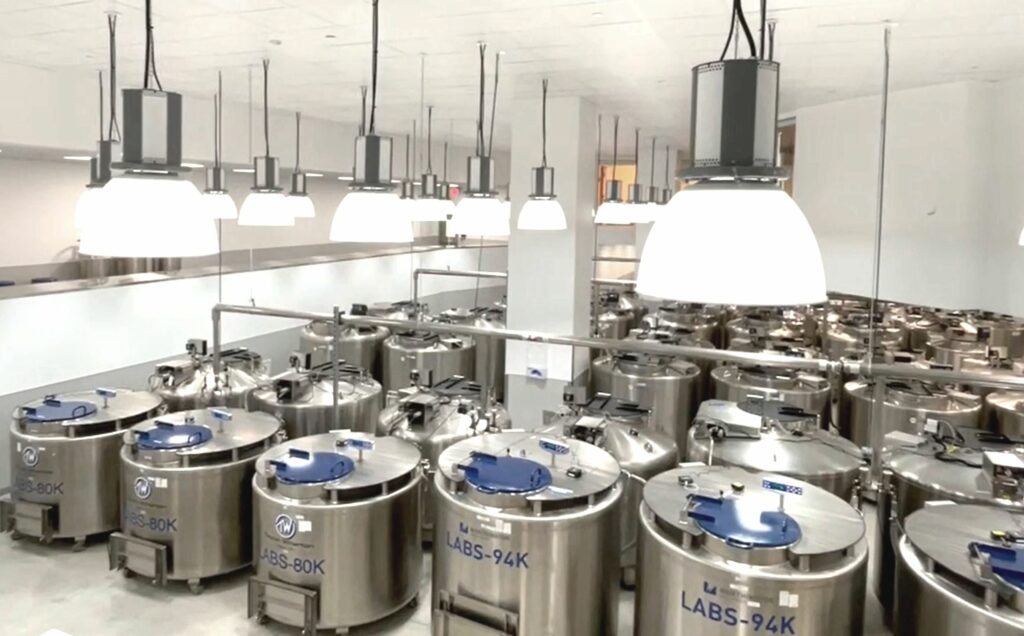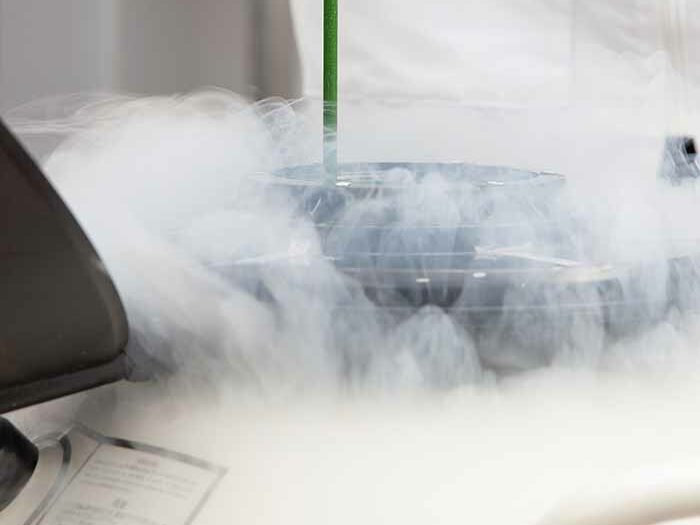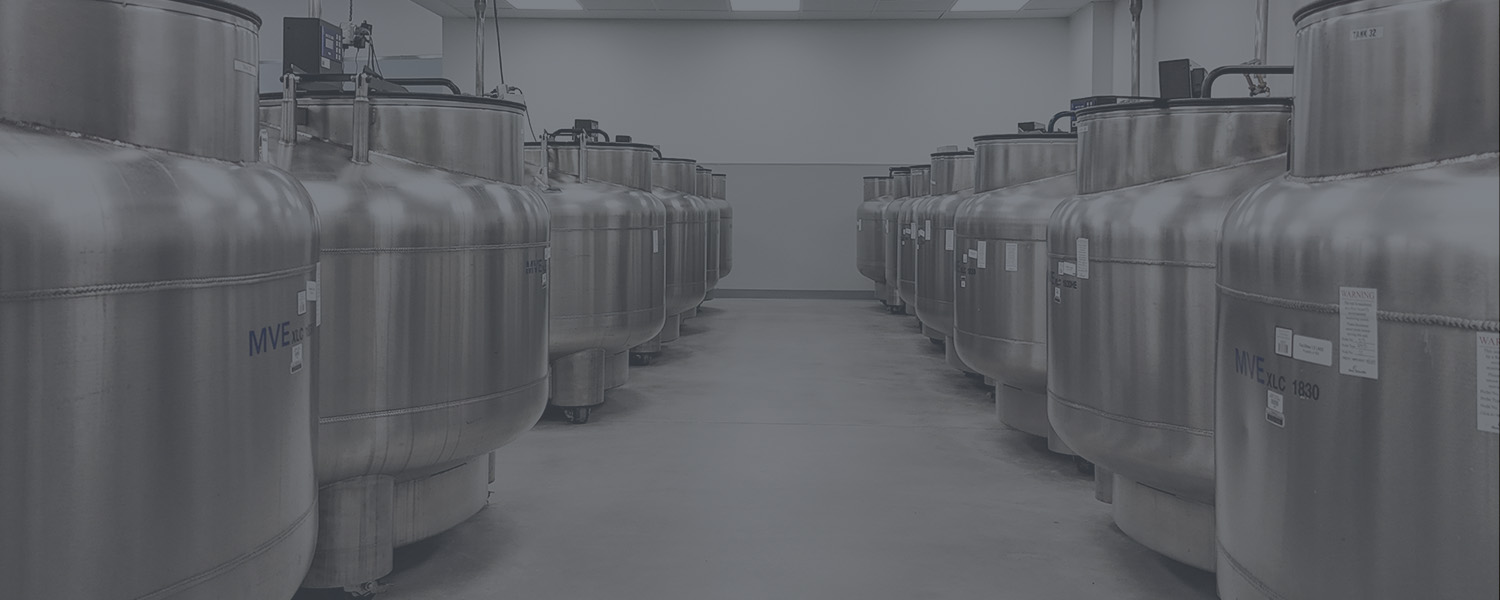Cryogenic storage is a critical aspect of many organizations including pharmaceuticals, biotechnology, and academic research groups. It involves the preservation of biological samples at extremely low temperatures, typically below -190 degrees Celsius, to maintain their integrity and functionality over an extended period. Many organizations, faced with the challenges and expense of managing their cryogenic storage requirements, are turning to outsourcing as a viable solution. In this article, we will explore what outsourcing cryogenic storage involves, the conditions under which samples are kept, and five compelling reasons why businesses find it advantageous to entrust this crucial task to the Global Integrated Analytical Biorepository.
Table of Contents
What is Cryogenic Storage?
Cryogenic storage involves storing and maintaining biological samples at ultra-low temperatures, typically within liquid nitrogen cryo-tanks or dewars. Cryogenic storage facilities should maintain stringent conditions to ensure the long-term viability of stored samples. Incorrectly storing or maintaining these samples can lead to irreversible loss of sample integrity and the loss of irreplaceable samples. Typically, a well-maintained storage facility should include:
Cryogenic Temperature tanks/dewars: Samples to be stored at temperatures below -190 degrees Celsius require specialized cryopreservation containers to be housed in. This prevents biological activity, including cell metabolism, and slows down chemical reactions ensuring the samples remain stable.
Controlled Environments: Storage facilities should be equipped with advanced monitoring and control systems to regulate temperature, humidity, and other environmental factors. This precision ensures the samples are kept in optimal conditions for extended periods. Monitoring these conditions is crucial, especially for samples that are part of clinical trials as the temperature log data for the samples will be audited by a regulatory body such as the FDA.

Secure Infrastructure: Cryogenic storage facilities must be designed with robust security measures, including access controls and monitoring systems, to safeguard against unauthorized access and potential hazards. Having the appropriate infrastructure set up, as is seen in the Global Integrated Analytical Biorepository is in line with the latest ISBER Best Practices.
Backup Systems and Disaster Recovery: To mitigate the risk of equipment failure, reputable cryogenic storage providers implement redundant systems and backup protocols in the event of disaster. This ensures the continuity of sample preservation even in the event of technical issues. This is crucial for organizations who are carrying out clinical trial work.
Continuous Monitoring and On-site Technical Services: Advanced monitoring technologies need to be employed to keep a constant check on the condition of stored samples. This includes real-time temperature monitoring, alarms for deviations, and regular system checks to guarantee the integrity of the stored biological materials. If there is an issue on-site technical services can move samples to back-up systems whilst pre-written disaster recovery plans are executed.
Advantages of Outsourcing Cryogenic Storage:
Expertise and Compliance:
Outsourcing to a Global Integrated Analytical Biorepository such as Sampled ensures that your samples are stored in compliance with industry standards and regulations such as CAP/CLIA. We possess the necessary expertise to handle various types of biological materials, reducing the risk of errors and ensuring regulatory compliance.
Cost-Efficiency:
Establishing and maintaining an in-house cryogenic storage facility involves significant upfront costs, including equipment, infrastructure, and personnel training. Outsourcing allows organizations to avoid these expenses and pay for storage services based on their specific needs, leading to cost savings in the long run. Moreover, by saving lab space in your own lab you can focus on the research that matters and reduce your overall footprint.
Focus on Core Competencies:
Outsourcing cryogenic storage enables organizations to focus on their core competencies and research activities. By delegating the responsibility of sample preservation to Sampled, researchers can allocate more time and resources to their primary focus, accelerating innovation and discovery.
Reduced Operational Risks:
Sampled specializes in cryogenic storage as we are equipped to handle the intricacies of sample preservation. By outsourcing sample storage to us, you can reduce the operational risks associated with managing in-house storage facilities. This includes minimizing the risk of equipment failure, sample loss and ensuring data security.

Scalability and Flexibility:
We have the ability to scale to meet your cryogenic storage requirements based on fluctuating research demands. At Sampled we offer customizable storage solutions, allowing researchers to adapt their storage capacity without the need for substantial infrastructure investments.
Outsourcing cryogenic storage is a strategic decision that offers numerous benefits to research organizations that require reliable and secure preservation of biological samples. By entrusting this critical task to us, businesses can leverage expertise, ensure compliance, and focus on their core activities, ultimately advancing research and innovation.
To learn more about how Sampled can support your Cryogenic Storage needs, speak to one of our experts today.

